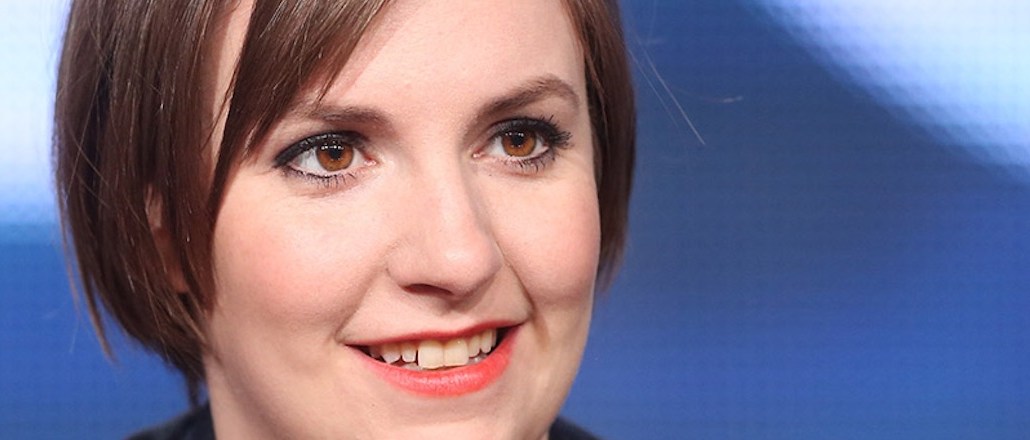Secure your place at the Digiday Publishing Summit in Vail, March 23-25

Lenny’s staff is small, but its ambitions are huge.
The plan is nothing short of world domination, half jokes Laia Garcia, the deputy editor of Lenny, created by “Girls” star Lena Dunham and showrunner Jenni Konner. Garcia is part of a full time staff of five and a stable of freelance writers that fill the year-old twice-weekly newsletter and website that’s headquartered in a Brooklyn co-working space, naturally.
The newsletter has grown to 500,000 subscribers, 97 percent of them, perhaps unsurprisingly, are women, Garcia told Digiday. She credits Lenny’s content, devoted fan base, attractive subject lines and a well-timed newsletter for a 69.5 percent gross open rate, which counts multiple opens. An unique open rate stat wasn’t immediately made available.
Lenny hopes to funnel that passionate fan base beyond its newsletter into other properties, including an upcoming show for HBO Now called “Lenny Shorts,” original online video, a book imprint and a podcast network slated to launch this fall. To achieve that, Lenny plans to double or triple the size of its staff.
“We want to takeover the world,” Garcia said. “But it’s hard to do without a little bit of corporate help.”
Lenny’s expansion plans mirror that of another female-focused email publisher, TheSkimm. The daily newsletter, which towers over Lenny with 3.5 million subscribers, recently received a $8 million investment led by 21st Century Fox to also help expand into video, beef up its advertising studio and expand onto more platforms.
Lenny’s content is a mix of quirky cultural pieces, political essays and celebrity-penned posts from the likes of actress Amanda Peet, Khloe Kardashian, model Emily Ratajkowski and even first lady Michelle Obama.
“We’re writing about what it’s like to be a woman,” Garcia said, offering her writers this advice: “If it’s important to you, it works on Lenny. That’s what really succeeds.”
Hearst, which handles Lenny’s ad sales, has also helped it launch a standalone website housed on Hearst’s CMS. The magazine publisher also syndicates Lenny content across its female-aimed magazine websites, like Marie Claire and Cosmopolitan.
Benjamin Cooley, CEO of Lenny, admitted that launching a standalone website for the publisher was initially an “afterthought” since the focus was solely on the newsletter and using the domain to attract newsletter sign-ups.
Traffic is small, hovering between 500,000 and 650,000 U.S. visitors a month, according to Hearst (comScore couldn’t independently confirm since the traffic doesn’t meet its minimum reporting standards), but Cooley said those numbers are a pleasant surprise. The website’s content, mostly repurposed from the newsletters mixed with original pieces, continually attracts a steady stream of traffic.
Advertising wise, it’s a mix of display ads and branded content posted within the newsletter and on LennyLetter.com, all sold on a sponsorship basis and not on CPM.
For now, Lenny is working with one advertiser a month for branded content with hopes of expanding it more frequently soon. Most recently, Secret Deodorant sponsored posts revolving around women in stressful situations, like so-called “poker queen” Helen Ellis.
“Only two people hated it,” Garcia laughed about seeing some complaints on Twitter. Secret Deodorant and Hearst, however, were happy with the results she said.
Jennie Scheer, vp and director of media at DigitasLBI said there’s been “some chatter” of brands being interested on Lenny, but haven’t heard of any with “specific interest.”
“There’s delicate balance between wanting to reach your audience at scale while also partnering with sites that are on the fringe,” Scheer said. “Loads of brands would be attracted to it, especially if they need to infuse their brand image with some sort of personality or point of view. Lena Dunham has never been shy and her property casts a halo.”
More in Media

Why more brands are rethinking influencer marketing with gamified micro-creator programs
Brands like Urban Outfitters and American Eagle are embracing a new, micro-creator-focused approach to influencer marketing. Why now?

WTF is pay per ‘demonstrated’ value in AI content licensing?
Publishers and tech companies are developing a “pay by demonstrated value” model in AI content licensing that ties compensation to usage.

The case for and against publisher content marketplaces
The debate isn’t whether publishers want marketplaces. It’s whether the economics support them.





